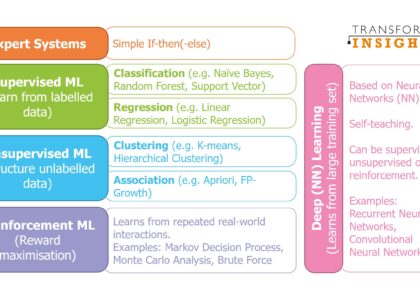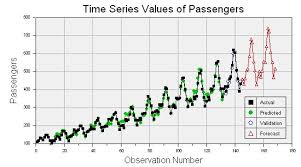The Power of Business Analytics
In today’s fast-paced and data-driven business environment, the ability to make informed decisions is crucial for success. This is where business analytics plays a vital role. Business analytics involves the use of statistical analysis, predictive modelling, and data visualisation to uncover valuable insights from vast amounts of data.
Benefits of Business Analytics
Data-Driven Decision Making: By leveraging business analytics, organisations can base their decisions on concrete data rather than gut feelings or intuition. This leads to more accurate and informed decision-making processes.
Improved Operational Efficiency: Business analytics helps identify inefficiencies in processes and operations by analysing key performance indicators (KPIs). This enables businesses to streamline their operations and reduce costs.
Enhanced Customer Insights: Understanding customer behaviour and preferences is essential for businesses to tailor their products and services effectively. Business analytics provides valuable insights into customer trends, enabling businesses to enhance customer experience and loyalty.
Types of Business Analytics
Descriptive Analytics: Descriptive analytics focuses on summarising historical data to understand past performance. It answers the question “What happened?” and forms the foundation for further analysis.
Predictive Analytics: Predictive analytics uses historical data to forecast future outcomes or trends. By applying statistical algorithms and machine learning techniques, businesses can anticipate future events and make proactive decisions.
Prescriptive Analytics: Prescriptive analytics goes beyond predicting outcomes by recommending actions to achieve desired results. It suggests the best course of action based on predictive models and business objectives.
The Future of Business Analytics
The field of business analytics is rapidly evolving with advancements in technology such as artificial intelligence (AI) and big data processing tools. Businesses that embrace these technologies gain a competitive edge by harnessing the power of real-time insights for strategic decision-making.
In conclusion, business analytics empowers organisations to extract actionable insights from data, driving growth, efficiency, and innovation. By leveraging the power of business analytics, businesses can adapt to changing market dynamics, optimise operations, and deliver exceptional value to customers in today’s digital age.
Understanding Business Analytics: Importance, Decision-Making, Benefits, Techniques, and the Role of AI
- What is business analytics and why is it important?
- How can business analytics help improve decision-making processes?
- What are the key benefits of implementing business analytics in an organisation?
- What are the different types of business analytics techniques available?
- How does artificial intelligence (AI) play a role in enhancing business analytics?
What is business analytics and why is it important?
Business analytics is the process of analysing data to gain valuable insights that can be used to make informed business decisions. It involves applying statistical methods, predictive modelling, and data visualisation techniques to understand trends, patterns, and relationships within the data. Business analytics is crucial for organisations as it enables them to identify opportunities for growth, optimise operational processes, and enhance overall performance. By leveraging business analytics, businesses can make data-driven decisions that lead to increased efficiency, improved customer satisfaction, and a competitive advantage in today’s dynamic business landscape.
How can business analytics help improve decision-making processes?
Business analytics plays a pivotal role in enhancing decision-making processes by providing organisations with valuable insights derived from data analysis. By utilising statistical models, predictive algorithms, and data visualisation tools, business analytics enables businesses to identify trends, patterns, and correlations within their data sets. This allows decision-makers to make informed and data-driven choices rather than relying solely on intuition or past experiences. With the aid of business analytics, organisations can evaluate risks more effectively, anticipate market changes, optimise operations, and ultimately make strategic decisions that drive growth and success.
What are the key benefits of implementing business analytics in an organisation?
Implementing business analytics in an organisation offers a multitude of key benefits that can significantly impact its operations and success. By leveraging business analytics, organisations gain the ability to make data-driven decisions based on accurate insights rather than intuition. This leads to improved operational efficiency through the identification of process inefficiencies and cost-saving opportunities. Additionally, business analytics provides valuable customer insights, enabling organisations to tailor their products and services to meet customer needs effectively, ultimately enhancing customer experience and loyalty. Overall, the implementation of business analytics empowers organisations to drive strategic growth, streamline operations, and stay competitive in today’s dynamic business landscape.
What are the different types of business analytics techniques available?
When exploring the realm of business analytics, one common query revolves around the various types of techniques available for analysis. Business analytics encompasses a range of methodologies, including descriptive analytics, predictive analytics, and prescriptive analytics. Descriptive analytics focuses on summarising historical data to provide insights into past performance. Predictive analytics utilises statistical algorithms and machine learning to forecast future trends and outcomes based on historical data patterns. Lastly, prescriptive analytics goes a step further by recommending specific actions to achieve desired results, combining predictive models with strategic decision-making. Understanding these distinct techniques allows businesses to leverage data effectively for informed decision-making and strategic planning.
How does artificial intelligence (AI) play a role in enhancing business analytics?
Artificial intelligence (AI) significantly enhances business analytics by providing advanced tools and techniques for data analysis and interpretation. AI algorithms can process vast amounts of data at unprecedented speeds, uncovering patterns and insights that might be missed by traditional methods. Through machine learning, AI systems continuously improve their analytical capabilities by learning from new data, leading to more accurate predictions and recommendations. AI also enables the automation of routine analytical tasks, freeing up human analysts to focus on more strategic decision-making. Furthermore, natural language processing (NLP), a subset of AI, allows for intuitive interaction with data through voice or text queries, making analytics more accessible to non-technical users. Overall, AI not only amplifies the power of business analytics but also transforms it into a more dynamic and proactive tool for driving business success.





